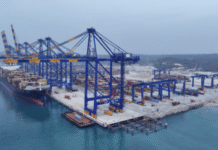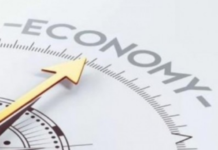New Delhi–Driven by positive economic sentiment, more than three-fourths (77 per cent) of senior finance executives of Indian companies expect moderate to substantial economic expansion in 2017, a survey said here on Thursday.
The survey – Global Business & Spending Outlook – commissioned by American Express and conducted by Institutional Investor Custom Research Lab, states that Indian companies are expected to increase their spending and investment in the market place with 67 per cent of Indian companies looking at focusing on spending and investment to support top-line growth while improving profitability this year.
The survey further revealed that about 37 per cent Indian finance executives expect their company’s level of spending and investment to increase by over 10 per cent as compared to only 24 per cent global executives, pointing towards Indian executives’ better preparedness at increasing their spending and investment as compared to their global counterparts.
“Indian companies are expected to increase their spending and investment this year which is backed by positive economic sentiment. With focus on optimising resources and efficiently managing spends across categories, India Inc. is headed towards a conducive growth chart,” said Saru Kaushal, Vice President and General Manager, Global Corporate Payments, American Express.
Indian executives are twice as likely to cite hardware and infrastructure as their top IT priority, compared with their global counterparts. According to 30 per cent of executives from India, compared to 13 per cent global and 14 per cent executives in Asia and Australia, hardware and infrastructure will be top most priority for companies.
According to the survey, nearly half (47 per cent) of the Indian executives expect exports to become important for their company’s growth in 2017.
The survey revealed that according to 67 per cent financial executives from India, pressure on their company to compete on the quality of its customer service has increased substantially. India leads when compared to the responses gathered from global (50 per cent) and Asia and Australia (44 per cent) markets for the same parameter. (IANS)






